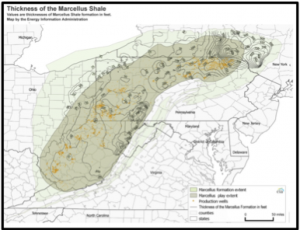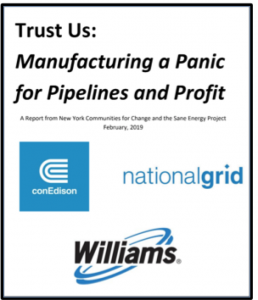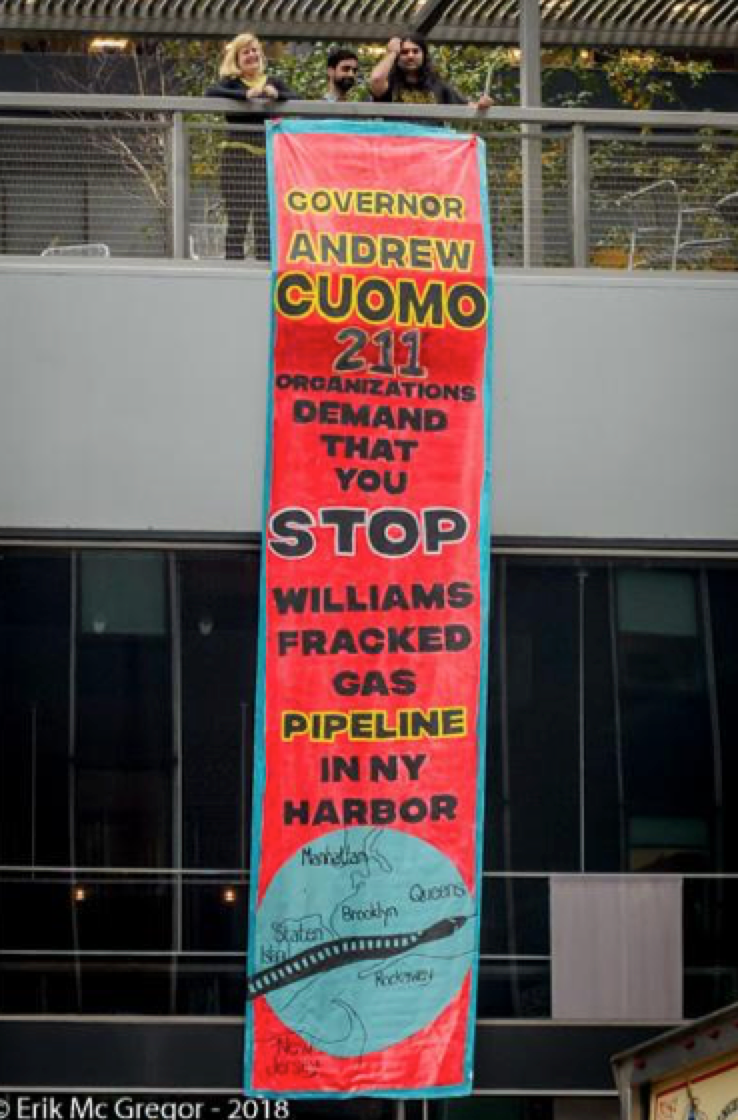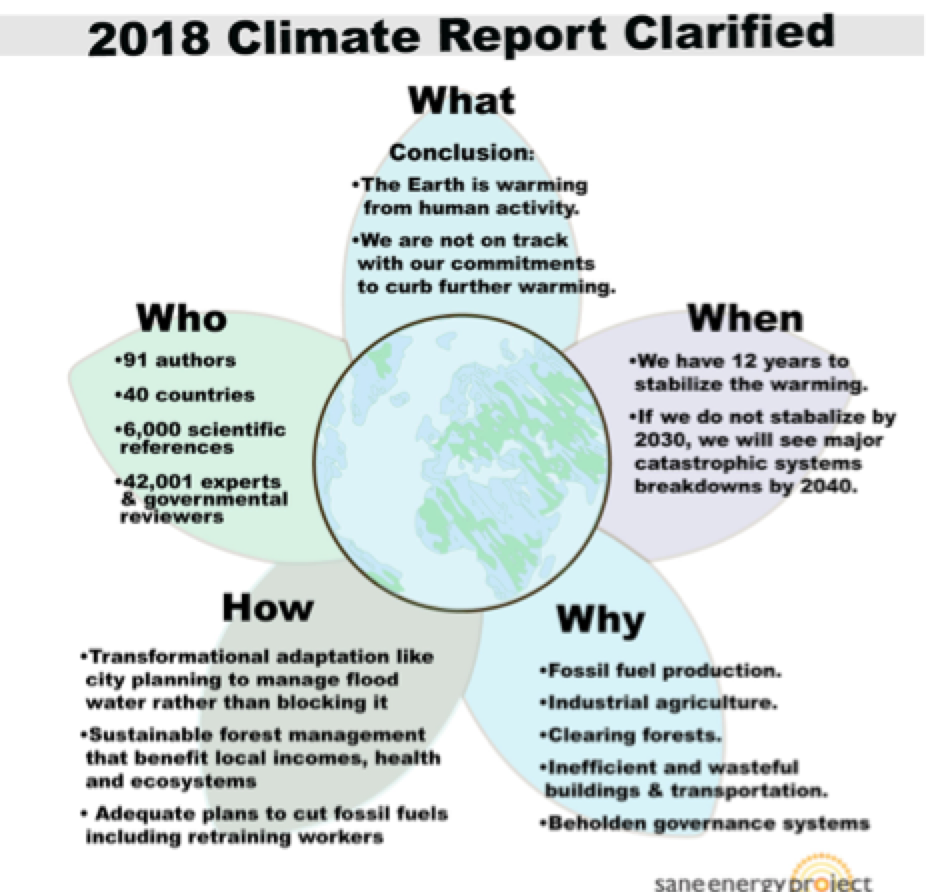Yves here. We are delighted to feature this article by activists who fighting against fracked gas. We tend to focus on big picture and national/international issues, but the hand-to-hand combat on these questions often takes place at the local level.
By Kim Fraczek and Lee Ziesche of the Sane Energy Project, an NYC-based grassroots groups fighting the fossil fuel industry through community organizing, direct action, and policy work on renewables since 2011. They are a co-founder of the Stop the Williams Pipeline Coalition.
The global consensus of climate science tells us we need to drastically change our energy system and economy if we want to sustain life on planet Earth … and that we only have 11 years to do it. But the fossil fuel industry, one of the industries most responsible for climate disaster, refuses to comply with the urgency to retire their bottom line that depends on an extractive economy of dig, burn and dump.
So instead of facing the fact that their business model is destroying the planet, the fossil fuel industry is taking a page out of the big tobacco playbook and lying to our faces. What’s the cigarette they’re trying to sell us? Fracked gas.
 The same industry that coined the term “natural” gas to package it as a “clean bridge fuel” are pushing a massive buildout of pipelines, compressor stations, power plants and export facilities to move fracked gas from shale plays like the Marcellus Shale to new markets as seen here on the interactive You Are Here map.
The same industry that coined the term “natural” gas to package it as a “clean bridge fuel” are pushing a massive buildout of pipelines, compressor stations, power plants and export facilities to move fracked gas from shale plays like the Marcellus Shale to new markets as seen here on the interactive You Are Here map.
But just as there never was a safe cigarette, there’s no safe consumption of fracked gas when it comes to our climate and health. Methane, the main component of fracked gas, is an even more potent a greenhouse gas than C02 for the first 20 years it’s in the atmosphere and if just a small percentage leaks, it’s worse for the climate than coal.(Marcellus shale map courtesy of geology.com)
By May 16, New York State Governor Andrew Cuomo will have to make a decision whether he stands with climate science or fossil fuel industry propaganda when his administration’s Department of Environmental Conservation (DEC) will decide to approve or deny permits for the Williams NESE fracked gas pipeline. And to thicken this plot, Donald Trump recently declared he will issue executive orders — to destroy the political power that anti-fossil fuel infrastructure communities have built — to demand that Williams NESE Pipeline gets built.
The proposed 23-mile long pipeline would bring fracked gas from Pennsylvania through New Jersey and NY Harbor and into New York City through an existing pipeline off the coast of the Rockaways, still working to rebuild after Superstorm Sandy 6 years ago.
Construction of the pipeline would dredge up industrial toxins and heavy metals that have sunk below the seafloor threatening wildlife that has seen a rebirth since the creation of Gateway National Park in 1971 to address the New York Harbor Pollution. Locking New York into several generations of fossil fuels with the Williams NESE Pipeline is not a risk we can afford to take right now.
National Grid, whose current business model is dependent on fracked gas expansion, claims the pipeline is necessary to meet growing gas demand. However, a new report, False Demand: The Case Against the Williams Fracked Gas Pipeline, proves there’s no need for it, especially when energy efficiency efforts to reduce gas usage are taken into account. So why is National Grid pushing for the pipeline?
 Another recently released report has the answer.Trust Us: Manufacturing a Panic for Pipelines and Profit, exposes the moratorium scare tactics big, corporate utilities like National Grid and Consolidated Edison are deploying to try to force Governor Cuomo to ignore climate science and approve fracked gas infrastructure and shows the staggering salaries top CEO’s from Williams, ConEd and National Grid are making off delivering fracked gas.
Another recently released report has the answer.Trust Us: Manufacturing a Panic for Pipelines and Profit, exposes the moratorium scare tactics big, corporate utilities like National Grid and Consolidated Edison are deploying to try to force Governor Cuomo to ignore climate science and approve fracked gas infrastructure and shows the staggering salaries top CEO’s from Williams, ConEd and National Grid are making off delivering fracked gas.
It also highlights the grassroots organizing of the Stop the Williams Pipeline coalition to expose these scare tactics and encourage Governor Cuomo and his administration to see the swift announcement of a gas moratorium as opportunities to invest in the truly renewable solutions to fossil fuel industry fears because it means the end of their business.

Facing the underbelly of the extractive system is not something this coalition shies away from. We have been operating a heightened level of urgency since day one:
- Organizing multi-state meetings to discuss strategy, hundreds of community informational sessions
- Challengingthe phony Federal Energy Regulatory Commission (FERC) process that facilitates rather than regulates interstate gas pipelines in order to gain a hearty fee in exchange for approvals
- Building democratic people power through tactics like organizing a letteropposing the pipeline to Governor Cuomo from over 60 bi-partisan NYC elected officials including the Comptroller of New York City and the Speaker of our City Council.
- Garnering261 New York State organizations, over 16,000 petition signatures
- Dropping a 30 foot banneroutside Cuomo’s NYC office in midtown Manhattan
- Passing a NYC Council resolution against the Williams NESE pipeline on Thursday, April 18
- Organizing a march with the youth Climate Strikers and Indigenous leaders like Ladonna Standing Bull Allard of Standing Rock, and NYC Public Advocate Jumaane Williams that stretched over the Brooklyn Bridge.
If Trump has his way, or if Cuomo succumbs to the pressure of the corporate utilities, we are fully prepared to put our bodies on the line to stop this pipeline.If we are going to take
control of our economy and build an economy that reflects values of regeneration and cooperation, then we must respond to the urgent warning from the global consensus of our planet’s science community, and bring an immediate halt to this extractive economy.



>The global consensus of climate science tells us we need to drastically change our energy system and economy
And what would be hilarious, if it didn’t suck so much, is that economics itself even not charging for the planetary impacts – not that we could -, says fracking is a mistake. You know, the one useful thing you get from Econ 101: “If you lose money then you should be doing something else”.
I honestly think that since the oil/gas bidness is considered “manly” that it gets a pass. We XYs just naturally do stupid things, and for some reason that’s celebrated. I’m pretty sure it isn’t a mistake that if you substitute “u” for “ra” in fracking you get, well you know.
Ok, now I’ve read everything ; oil/gas is considered “manly”…
Your welcome to “honestly think” what ever you like, but making everything you disagree with some kind of “gender” issue is about as offensive and dangerous as calling anyone you disagree with a Nazi, xenophob, racist..the new mantra of this “pre-programmed “generation.
Are fracking in the US, support for Saudi Arabia, and our reserve currency status connected? I believe they are. Which would explain why every politician supports this money losing / environmental destructive technology.
The second thing I would like to comment on is our use of fossil fuels. I own a Chevy volt. In my opinion it is the best car ever, but this is the last year it will be produced. It drives like a dream, no mechanical problems and my average is about 170 mpg. It has two engines, a hybrid and an electric. Instead of the sales of Volts being thru the roof, people appear to prefer the SUV.
The last comment is on the never ending population growth. I don’t see how we can ever live in harmony with the earth if we don’t address the elephant in the room. We talk about it 50 years ago, but it appears to be a taboo subject now.
My respect and admiration for these grassroots organizations. Hope they win on this
Although natural gas emits CO2, it burns more cleanly than fuel oil or coal, with no soot emission. Converting to electrical heating is not feasible for the vast majority of residences in metro NY. Con Edison has halted oil to gas conversions because of insufficient gas pipeline capacity. What do the pipeline opponents propose that the people with oil furnaces should do? Where will the electrical generating capacity for converting all cooking and heating to electric mode come from, especially if the nuclear plants are shut down? Natural gas is a reasonable transitional energy source. The current heavy reliance on oil and coal is undesirable, but wind and solar are not ready to take up the slack. Natural gas can help us bridge the gap. We can’t ignore arithmetic when dealing with climate change.
Well I certainly learned something from these young folks:
“The same industry that coined the term ‘natural gas’ to package it as a ‘clean bridge fuel'”…
Who knew? Certainly not the Earth scientists and everyone in the petroleum industry who have been using the term for generations. (It means a mix of gases, mostly methane, that forms at depth underground from sediment and sedimentary rock rich in organic remains, mostly remains of plankton.)
I could characterize these name reformers by using their tactic: the activists who coined the term “fracked gas” to package the stuff as BAD BAD.
So here: Natural gas that comes out of oil wells is called associated gas, while what comes out of wells that produce no oil is called dry gas. The wells could be of the conventional vertical kind–drilled into reservoir rock and collecting gas that flows into the well bore–or the fracked kind that uses horizontal drilling at depth combined with creating fractures that allow gas to flow into the well bore. Either way it’s mostly methane, formed from the same fossil organics, and it’s called natural gas.
To stir some metaphors together: Get your facts straight before you mount a high horse.
We’d be better off not using the stuff at all but that’s a goal that isn’t going to be easy to reach.
> Methane, the main component of fracked gas, is an even more potent a greenhouse gas than C02
Well I am going to regret this by angering people, but I am going to propose a slight context-specific counter perspective based on this. For the record I am in no way pro-fracking but this a thought-question about the lesser of two evils that has me stumped, and the nakedcapitalism commentariate are a clever and and insightful bunch. Here goes:
At most frack sites/plays, if undisturbed the gas will stay in the ground – okay, simple, leave it be. However there are some very notable exceptions to this. While some exceptions are more traditionally “solid” “rocky” reservoirs, one of the largest such reservoirs of methane on the planet is permafrost. In a cruel twist of irony as the planet warms the permafrost melts, and as it melts the methane contained therein starts to leak into the atmosphere. As said above methane is a considerably more potent greenhouse gas then CO2 …, but it can be converted to CO2 on a 1:1 ratio basis by being used productively…
Thus the moral quandary that stumps me: As bad as Fracking is generally speaking, is fracking permafrost to use the methane productively and convert it into an equal quantity of CO2 a better solution then just letting the permafrost melt and exhaust all the Methane into the atmosphere? Fracking and using the methane both produces power and actually lowers the total green house effect by converting it to CO2 relative to letting it just fallow and seep into the atmosphere on its own. Additionally, while still too slow for our good, CO2 eventually gets fixed and returns into the solid state of the carbon cycle much faster than atmospheric methane does, so this dark-proposal actually looks net-positive on both the short an long term environmentally speaking. As for the Fracking induced earth quakes … well while not earthquakes the melting permafrost is effectively doing the same type of damage on its own.
Thoughts?